Keywords: Grief
There are more than 200 results, only the first 200 are displayed here.
-

ARTS AND CULTURE
- Tim Kroenert
- 01 February 2017
2 Comments
The chaos embedded in these characters' world is made clear through physical symbols - Chiron flees from bullies into an abandoned drug den, where he finds a used syringe and holds it up to the light like a talisman - and by the camera, which trails and circles the characters, or locks onto their faces, a conduit for their grief or desperation or lust or rage or joy. Bursts of actual violence or dramatic confrontation are rare. Where they occur it is their emotional content that is most confronting.
READ MORE 
-
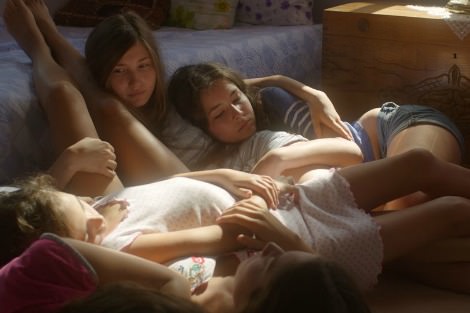
ARTS AND CULTURE
- Tim Kroenert
- 14 December 2016
3 Comments
Amid the noise of Batman battling Superman, the Avengers turning against each other, and middle aged fanboys whingeing about the Ghostbusters franchise being revitalised with an all-female lead cast, 2016 has actually been a pretty solid year for movies, both in and outside of Hollywood. We haven't had time to see them all (we have a magazine to publish, after all) but nonetheless here is a list of our ten favourite films reviewed in Eureka Street this year.
READ MORE 
-

ARTS AND CULTURE
- Tim Kroenert
- 15 November 2016
1 Comment
In science fiction, stories of first contact typically have as much to say about humanity as they do about the extra-terrestrial creations of the author's imagination. Mary Doria Russell's 1998 novel The Sparrow explores the consequences of a Jesuit-led mission to a planet near Alpha Centauri, which are profound for the planet's sentient inhabitants and devastating for the human travellers. As in The Sparrow, language is central to Quebecois filmmaker Denis Villeneuve's philosophically piquant first contact story Arrival.
READ MORE 
-
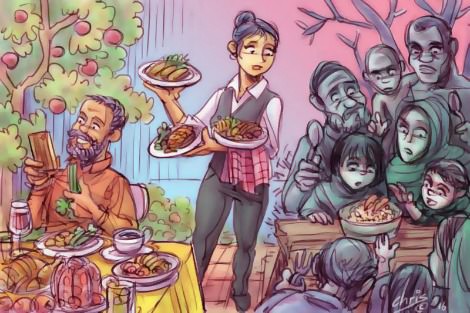
AUSTRALIA
- Julie Edwards
- 17 October 2016
17 Comments
One of the most misused passages of Christian scripture tells us we shall always have the poor with us. It is often repeated by those who are not poor in order to dismiss any project that involves public expenditure or private generosity to people who are poor. When we do not focus on the good or bad conscience of the observer but on the lives of the people who are poor, we can see that the statement is not a justification for a modern society that allows people to live in poverty. It is an indictment.
READ MORE 
-

AUSTRALIA
- Joan Hume
- 08 September 2016
15 Comments
On 26 July this year of 19 severely disabled residents were massacred as they slept in their beds at a residential care facility in Sagamihara, Japan. A further 26 were wounded. The perpetrator, Satoshi Uematsu, a former employee sacked for his disturbing views about the residents, later boasted of his 'achievements': 'It is better that disabled people disappear.' Isn't there an ever present probability that without an inclusive and accepting community, without believing in our possibilities rather than seeing only our limitations, we will spawn the likes of another Satoshi Uematsu here?
READ MORE 
-
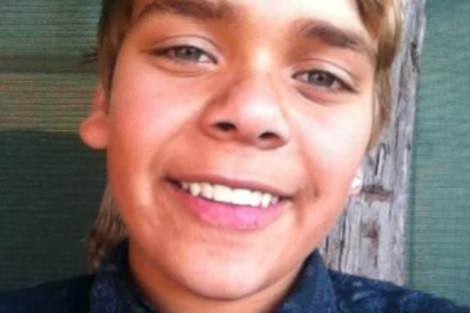
AUSTRALIA
- Kate Galloway
- 06 September 2016
5 Comments
This is the scandalous state of Indigenous affairs in Australia. Aboriginal and Torres Strait Islander people and their communities literally face a life and death struggle against the state itself. These are not isolated incidents. They represent the intrinsic failure of our society to heed the concerns of communities themselves, and to engage with fellow citizens in a dignified and respectful way. The failure is so grave that state treatment meted out to Indigenous Australians is actively harmful on a large scale.
READ MORE 
-
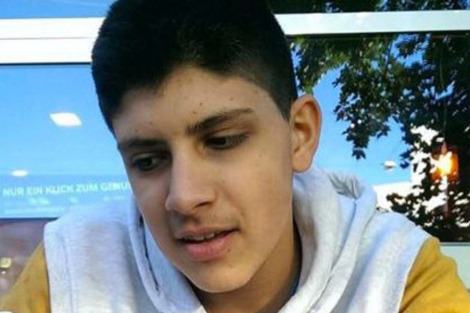
AUSTRALIA
- Andrew Hamilton
- 28 July 2016
5 Comments
When confronted by violent killings we should be appalled, identify sympathetically with the victims and with those affected indirectly by these tragedies, and also take a respectful interest in the complex lives of the perpetrators and the relationships that contributed to the shootings. The pause before making larger judgments respects the complexity of motivation and of social interactions involved in the killings, and offers a base for reflecting on how we may lessen the possibility of them happening in future.
READ MORE 
-

ARTS AND CULTURE
- Tim Kroenert
- 30 June 2016
1 Comment
This strange and engrossing Italian film proffers an unsettling rumination upon the rituals of mourning, and upon a mode of grief which itself is a kind of death. It opens with a sweeping close-up of an imposing crucifix, and the fine musculature of a graven Christ. A mass of mourners is then revealed, and before them a woman, immobile and weeping silently. The camera angle cuts to calf level, to reveal a trail of urine more copious than her tears, running down her leg to her shoes.
READ MORE 
-
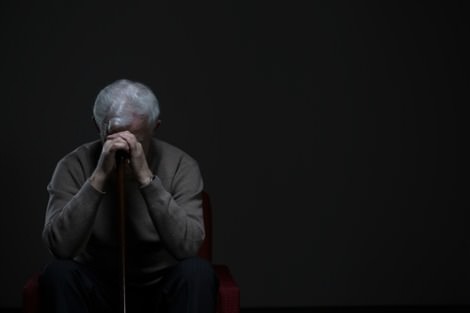
ARTS AND CULTURE
- Julie Guirgis
- 16 June 2016
13 Comments
Today I walked past the bathroom and noticed a pale yellow puddle with an odour worse than an unflushed toilet. I cringed at the stench, with the realisation that I had to wash urine off the floor ... Dad's illness sometimes causes ambiguous loss. It is unclear, has no resolution or closure. He is like someone I don't know anymore; he is gone-but-still-there. This leads to complicated grief. I can't look at him without seeing a fading picture of who he used to be, and speak of him in the past tense.
READ MORE 
-

ARTS AND CULTURE
I found the remains of my bicycle on the carport wall. They were broken and twisted, like the body of a victim left to rot in a serial killer movie. The police officer told me it was strange. So strange that his partner took photos and dusted for prints. I couldn't make sense of the robbery. While sturdy, my bicycle was seven years old, and had seen better days. It wasn't worth much money. Who would buy worn leather and a few scratched bits of metal on eBay? Or risk being caught for second hand parts?
READ MORE 
-

ARTS AND CULTURE
As is the time-honoured tradition of Hollywood PIs, Holland has long bound the wounds of some unresolved grief in alcohol and cynicism. Notwithstanding individual tastes that are by no means aligned with gender, this is the kind of movie that can tend to appeal to puerile male interests while diminishing respect for women. In this regard Shane Black, a mainstream filmmaker who is more self-aware than most, tries to have his cake and eat it too, by both drawing and subverting the objectifying male gaze.
READ MORE 
-
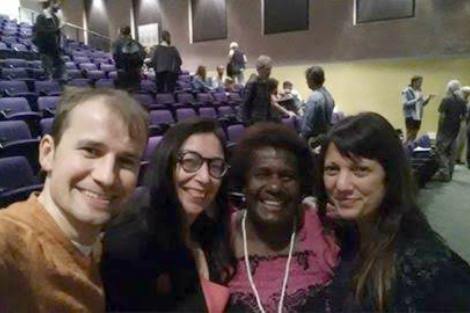
ENVIRONMENT
Ursula Rakova told how the sea that had been the friend of her people, was turning against them. It had crashed through and divided her island in two. Coconut palms were collapsing at the new shoreline. Food gardens were lost, as the soil was increasingly rendered infertile by salty tides that washed over them. The land that had been handed from grandmother to daughter, would bequeath no legacy to the granddaughters. The homeland of generations was disappearing before their eyes.
READ MORE 